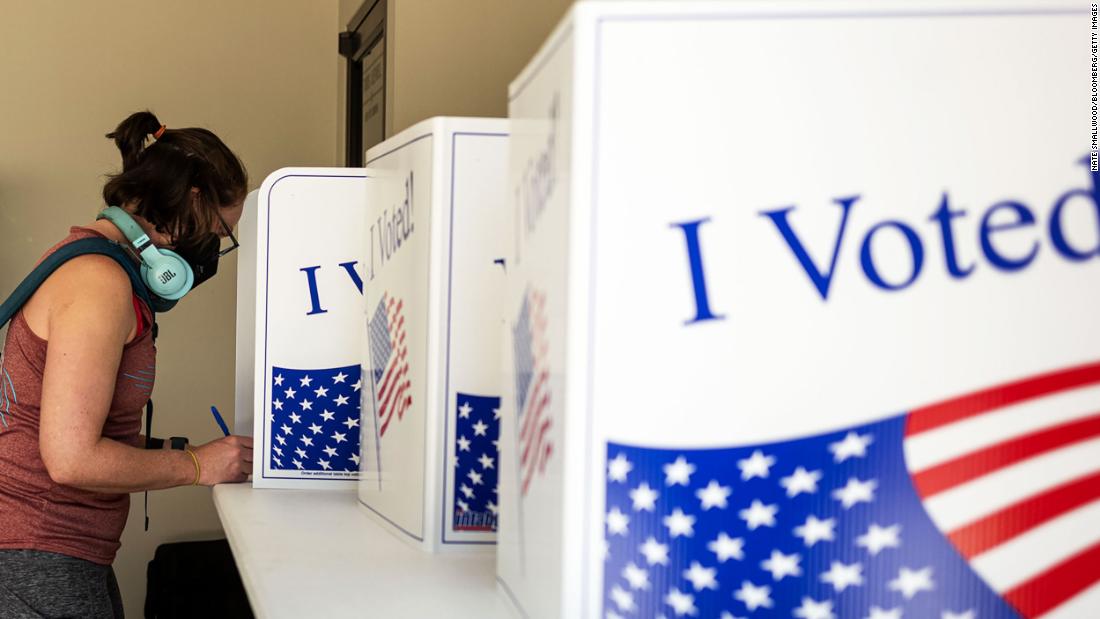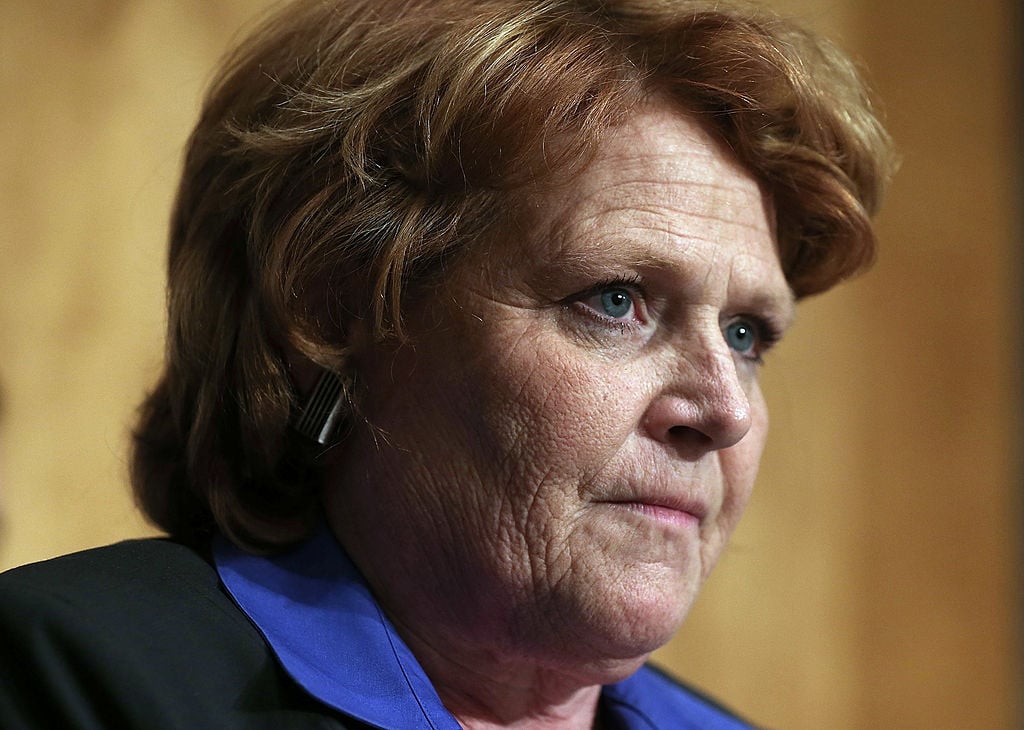Describing his time in government, he writes: "Humbled by the complexity of the task, I orchestrated some of the most significant breakthroughs in diplomacy in the last fifty years." And that's just in the preface. The nearly 500 pages that follow are rife with this kind of self-congratulatory puffery.
By Kushner's own account, he performed brilliantly in all of these gigs, a fact that, in his view, would be more widely recognized if only other senior administration officials hadn't been so incapable of appreciating his inestimable talents.
Kushner recounts an episode in which Trump's chief strategist, Steve Bannon, and Trump's chief of staff, Reince Priebus, supposedly drafted a resignation letter for Kushner to sign. Kushner takes the opportunity to settle some scores with a number of those top officials, including Bannon, former Trump chief of staff John Kelly, former Secretary of State Rex Tillerson and Dr. Anthony Fauci, the director of the National Institute of Allergy and Infectious Diseases.
Kushner's real-world experience before entering the White House was running his family real estate company. In that role, he presided over what was arguably the
worst real estate deal in Manhattan's history: Buying 666 Fifth Avenue for a record $1.8 billion in 2007, which
became a financial albatross when the recession hit a short time later.
Kushner also purchased the New York Observer, which he reportedly used to attempt to undermine his rivals and
suppress unflattering stories about his cronies. The Observer went entirely digital in 2016, and
CNN reported at the time that its influence had "diminished" since Kushner had taken it over.
Never mind those failures: When Trump took the White House, Kushner became the go-to guy on an ever-widening set of portfolios. On NAFTA, which Trump called "the worst trade deal ever," Kushner inserted himself into the re-negotiations around the trade accord.
But, in the end, the deal that he struck, which was rebranded as the United States Mexico Canada Agreement (USMCA),was a lot like the old NAFTA.
The new deal included
relatively minor changes, such as opening up the Canadian market to US dairy farmers and requiring automobiles to have a higher percentage (75% instead of 62.5%) of their components manufactured in the three countries in order to qualify for zero tariffs.
Kushner presented the USMCA as momentous ("I helped renegotiate the largest trade deal in history") despite the fact that the changes between NATFA and USMCA were "mostly cosmetic," according to a
Brookings Institution analysis of the new deal.
The Abraham Accords
Kushner can certainly count the "
Abraham Accords" as an achievement, given that two small Gulf monarchies, the United Arab Emirates (UAE) and Bahrain, signed deals recognizing the state of Israel for the first time during the Trump administration. Kosovo, Morocco and Sudan all
forged ties with Israel as well.But the Abraham Accords hardly compare with the 1978
Camp David Accords that then-President Jimmy Carter brokered between Egypt and Israel, two countries that had been at war for decades.
The UAE and Bahrain, meanwhile, had never fought a war with Israel, and the fact that they normalized relations with the Jewish state was more about creating a coalition against their common enemy Iran than Kushner's brilliant negotiations. Yet, Kushner recounts his role with blustering bravado: "Getting this deal done was like trying to land a plane on an aircraft carrier in the middle of a storm." Alrighty.
A key part of Kushner's plan to bring peace to the Palestinian territories was to secure
$50 billion of investment for Palestinian projects. But both the Palestinians and the Israelis boycotted the much-ballyhooed Palestinian investment conference that Kushner hosted in Bahrain in June 2019.
And there
doesn't seem to be evidence that Kushner's investment plans ever came to fruition.
Kushner also seems to have forgotten the original purpose of why he took up the "peace process." It was purportedly to bring about a two-state solution between Israel and the Palestinians.
Kushner seemed to be operating on the theory that normalizing relations between Israel and the Arab states would cause the Arab countries to push the Palestinians to agree to a two-state solution. Providing significant Arab investment in the Palestinian territories would also help sweeten the deal. But none of that worked and by the end of the Trump administration, the two-state solution seemed more a mirage than ever.
Meanwhile, the Trump administration gave then Israeli Prime Minister Benjamin Netanyahu --
an old family friend of the Kushners -- pretty much everything he wanted: pulling out of the Iranian nuclear deal, reversing American policy and declaring that it
did not consider Israeli settlements in the West Bank a violation of international law and withdrawing US support for the United Nations Relief and Works Agency (UNRWA), which among other things,
educated hundreds of thousands of displaced Palestinian kids living as refugees in countries around the Middle East.
The Crown Prince
Trump's first overseas visit was to
Saudi Arabia, a trip that Kushner had pushed hard for. Shortly after the trip, the Saudis imposed a blockade on
Qatar, which had long found their enormously wealthy neighbor to be an irritant. The Saudis knew that with President Barack Obama in the White House, a
blockade of Qatar likely wouldn't fly, but the Trump-Kushner team was
another matter.
It's unclear whether Trump and Kushner were either unaware or simply didn't care that Qatar sits on some of the largest
natural gas reserves in the world and is also home to the largest US military base in the Middle East.
The two Trump cabinet officials who knew the most about Qatar,
Tillerson, who was previously the chairman and CEO of Exxon, and then-Secretary of Defense James
Mattis, who had commanded CENTCOM, were both angered by the blockade. But Kushner
sidelined them both on the Qatar issue.
Saudi Crown Prince Mohammed bin Salman, known as MBS, knew that the one person who really counted in all this was Kushner, who had his back. The absolute Gulf monarchies who run their fiefdoms as family businesses had a shrewd understanding of where the power really resided in the Trump administration.
Kushner's relationship with MBS, who the CIA concluded ordered the murder of Washington Post columnist Jamal Khashoggi, has certainly proven lucrative.
Against the advice of its own board of advisers, a Saudi sovereign wealth fund led by MBS reportedly invested $2 billion in
Kushner's newly formed private equity firm just six months after Trump left office. This extraordinarily cushy deal goes unmentioned in Kushner's very long book.
Prison Reform
In fairness to Kushner, he certainly did get some things right. One of most important events in his adult life was, inarguably,
the imprisonment of his father Charles Kushner, who was convicted of witness tampering and several other charges after he hired a prostitute to seduce his brother-in-law in a New Jersey hotel room while a hidden camera rolled.
As part of the revenge plot, he then sent the tape to his own sister, who along with her husband, had been cooperating with the feds in an investigation into Charles Kushner's campaign contributions. He was sentenced to two years, and his son movingly describes visiting his father every weekend at the Alabama prison where he was incarcerated.
Given this
personal experience, Kushner campaigned for prison reform during his time in the Trump White House and helped create a coalition with
Sen. Dick Durbin of Illinois and CNN commentator Van Jones, among others, to move this bipartisan measure through Congress. The
resulting reforms helped address some of the
disparities in sentencing between crack cocaine convictions and powder cocaine offenses that tended to penalize Black offenders
It also lowered mandatory minimum sentences for non-violent crimes and gave judges the leeway to dole out more lenient sentences to those who deserved them.
Covid-19
Kushner also deserves credit for helping orchestrate the Trump administration's vaccination program, known as "
Operation Warp Speed," during the pandemic. The government invested $1 billion in Moderna, which produced a testable vaccine in just a matter of months and placed another $1.5 billion order for 100 million doses of the vaccine.
And while Pfizer didn't directly take US government money in the research phase, the administration
did strike an advance-purchase deal with the company to obtain more than 100 million doses for $1.95 billion.
Yet, Kushner never grapples with his father-in-law's role as a
one-man super-spreader of lies and disinformation. This surely contributed to many unnecessary deaths during the pandemic, given Trump's influence on his supporters and the key role that the president's bully pulpit plays in American life.
Early on, Trump repeatedly
downplayed the severity of the pandemic, saying the virus would "go away" or "disappear." Trump also
denigrated mask-wearing and almost invariably
refused to wear a mask himself at a time when vaccines were not yet available and masks were one of the
most effective ways to curb the spread of the virus.
Dr. Deborah Birx, Trump's coronavirus response coordinator,
told a House select subcommittee that that the Trump administration's botched response to Covid-19 proved lethal for many tens of thousands of Americans. If the administration had followed the science and implemented more mitigation measures,
she testified, "We probably could have decreased fatalities into the 30-percent-less to 40-percent-less range."
Kushner also gives his father-in-law a free pass on spreading falsehoods about the 2020 election being stolen from him. At one point, Kushner writes that "2020 was full of electoral anomalies" without saying exactly what they were. He also credits Trump's personal lawyer Rudy Giuliani with efforts to overturn the election, while Kushner himself remained focused on Operation Warp Speed and his Middle East peace efforts.
Of course, Kushner also fails to acknowledge his father-in-law's role in fomenting the attack on the US Capitol on January 6, 2021, and he makes the now debunked claim that "no one at the White House expected violence that day." In fact, Cassidy Hutchinson, a top aide to the White House's chief of staff,
testified publicly under oath in June that Trump's national security adviser and the deputy chief of staff for operations had raised the issue of potential violence in the days before January 6.
For readers looking for a robust defense of the Trump administration that makes no pretense to being an impartial account, Kushner's "Breaking History" is the book for you. For those who are looking for a more wide-ranging and balanced accounting of Trump's four years in office, I'm looking forward to
Peter Baker and Susan Glasser's book, which is scheduled for release next month, as well as
Maggie Haberman's, which will be out in October.







